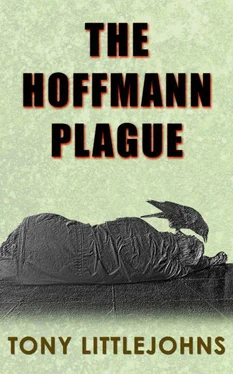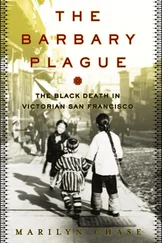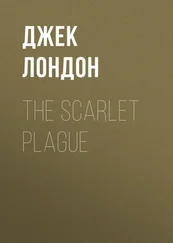Obviously, she didn’t know anything about the man-in-the-hat (as she called him) or his situation, but she hadn’t been nearly as prepared as he had been. She had stored some provisions in her apartment, but the majority of her food had been obtained in the weeks following her recovery. She had broken into the apartment opposite hers, which she knew to be empty as the owners had gone to London three months before. They hadn’t returned, so she assumed they must be dead, and had used their apartment as a storage area for everything that she collected. Where she had been organised, though, was in water collection. She’d gained access to the building’s roof and had many containers there collecting rainwater. She had also been cooking up there on a barbeque, always after dark and when the weather allowed, but didn’t have a shelter there, which irked her. She thought she would need to find somewhere else to live very soon.
Back on the seafront, the man had stopped first at Bexhill Sailing Club to examine the boats on the beach there to see if they could be of use to him. He didn’t know the technical names, but they were small sailing dinghies of various sizes. The cables on the masts twanged and sang in the breeze. Some had no masts and were small enough for his needs, but none appeared to have rowlocks fitted for oars, though he felt sure he could improvise something. He jotted some things down in his notebook: he never went anywhere without it, as it was important to write down locations of things he saw that he intended to go back to, or ideas that came to him.
Now, he was kneeling by the beach huts on De La Warr Parade, looking at a clump of plants growing from the pebbles. It looked like a large sort of cabbage, but more open. He’d always seen them along the coast above the high-tide mark, but hadn’t paid much attention to them in the past. He figured it was time to start paying attention to lots of plants that he came across. There were many varieties growing along that stretch of coastline that he’d often noticed; many of them with succulent stems and leaves. He needed to find out which were edible as they could be an important source of vitamins, minerals and carbohydrates. He decided to cut some samples on his way back and try to identify them from his books.
At the angling club a bit further on, he didn’t have much trouble breaking in with his wrecking bar and hammer. As he opened the door he recoiled in shock; there was a badly decomposed corpse slumped on a chair. He withdrew and tied a bandana around his nose and mouth before going back in, but at least he didn’t vomit this time. He assumed that since he’d had the disease and recovered he was now immune to it, and he also knew that bacteria couldn’t survive in the open for long, so it would be okay to touch things. He wondered if the guy had locked himself in there to avoid infecting others, or maybe he’d just had nowhere else to go.
A quick search revealed some useful items. He found two pairs of oars leaning against the wall; they were far too cumbersome to carry back once he had his bike rack and paniers, but at least he knew they were there and could come back another time. There were a couple of lockers containing fishing rods, reels and tackle – fab! There was also a cupboard filled with old junk that people had chucked in there, thinking it might be useful one day; the sort of thing every bloke had in his garage. Rummaging through it, he found a pair of hefty brass rowlocks, complete with nuts and washers attached. That was great news; with his hand-brace he could drill holes in the gunwale of a suitable boat and attach the rowlocks, enabling him to fit the oars and get out on the sea whenever it was calm enough. On a cork notice-board he saw a book of tide-tables for the year, which he took and put it in his rucksack. That would be useful for knowing the times of high and low tides, and could save him many wasted trips. It occurred to him that in future years – if he survived that long – he wouldn’t have that information; obviously, no one was going to be printing tide-tables again in the foreseeable future. He assumed there must be a formula or something for calculating tide-times, so he wrote in his notebook to look into it from the books he had.
He was pleased with his findings and made ready to leave. He looked at the body and hesitated; he didn’t like leaving it there for when he came back, so he looked around for a way of disposing of it. There was a shovel, a broom, a mop and other cleaning supplies in another cupboard, so he went outside and cut off a tarp from a boat. He laid it on the floor in front of the corpse and hesitated, cringing. ‘Sorry mate, but you’ve got to go. Rest in peace.’ He used the shovel to tilt the chair up until the body fell off and landed on the tarp, then dragged it outside and left it ten yards from the building. There was an old paraffin lamp hanging by the door so he took it down, went back to the body and poured the contents over it. He lit a piece of rag and tossed it on top; the fuel caught immediately and he turned his back and walked away.
He walked up Galley Hill, stopping at the top. It wasn’t much of a hill, but it was the highest point on the coast between Hastings to the east and Eastbourne to the west, having good views along the coastline. He gazed towards Hastings, which was much bigger than Bexhill, and wondered how many had survived there. He thought that, surely, there must be more people left alive here in Bexhill than just him and the woman he’d seen? There was a low concrete plinth there, with an inlaid metal surface inscribed in the form of a compass, pointing to various places in the world and their distances. He looked down and read some of them: New York – USA – 3,508 miles; Gibraltar – 1,056 miles; Rome – Italy – 841 miles; Sydney – Australia – 10,556 miles. He wondered what was happening in those places, and if it was the same there.
As he moved to leave, a memory came back to him of happier times: his brother and him, sitting in his car eating fish and chips on that spot, just over a year before. He burst into tears and sat down on a bench, overcome with grief for his family; cursing what had happened and cursing that he should be left alive in this God-forsaken place. He looked at the cliff-edge and thought, just for a second, of throwing himself off it, but the logical part of his brain told him it was too low, and he’d probably just break his legs and lie there in agony for three days before dying. He smiled grimly to himself, pulled himself together and got up from the bench.
He walked down the hill and then turned left through the underpass for the railway and onwards into the retail park. As he passed Marks and Spencer a smile crossed his face; maybe I’ll pop in there on the way back and get some of their nice ready-meals, to save cooking tonight! The car park was fairly empty, with a few cars parked randomly at odd angles, including a burnt-out wreck. As he passed it he saw the charred remains of two corpses inside.
He reached B&Q and the doors were open, so he walked in. It was dim inside so he turned on his torch and played it around. It was a mess; stuff was strewn everywhere, from crazed people panic-buying or looting. He walked to where the tools were and found some bolt cutters, took a pair and went to leave.
As he approached the checkouts, a man stepped out from the aisle to his left and barred his way, giving him the fright of his life. He was perhaps forty, but it was hard to tell; he was in a terrible state and none too steady on his feet.
‘Give me the bag,’ he said. There was a knife in his right hand, the blade glinting in the light from the doors.
He dropped the bolt cutters from his left hand and pulled out his machete with his right. ‘Tough shit – mine’s bigger than yours!’ he replied, with far more conviction than he felt.
Читать дальше












